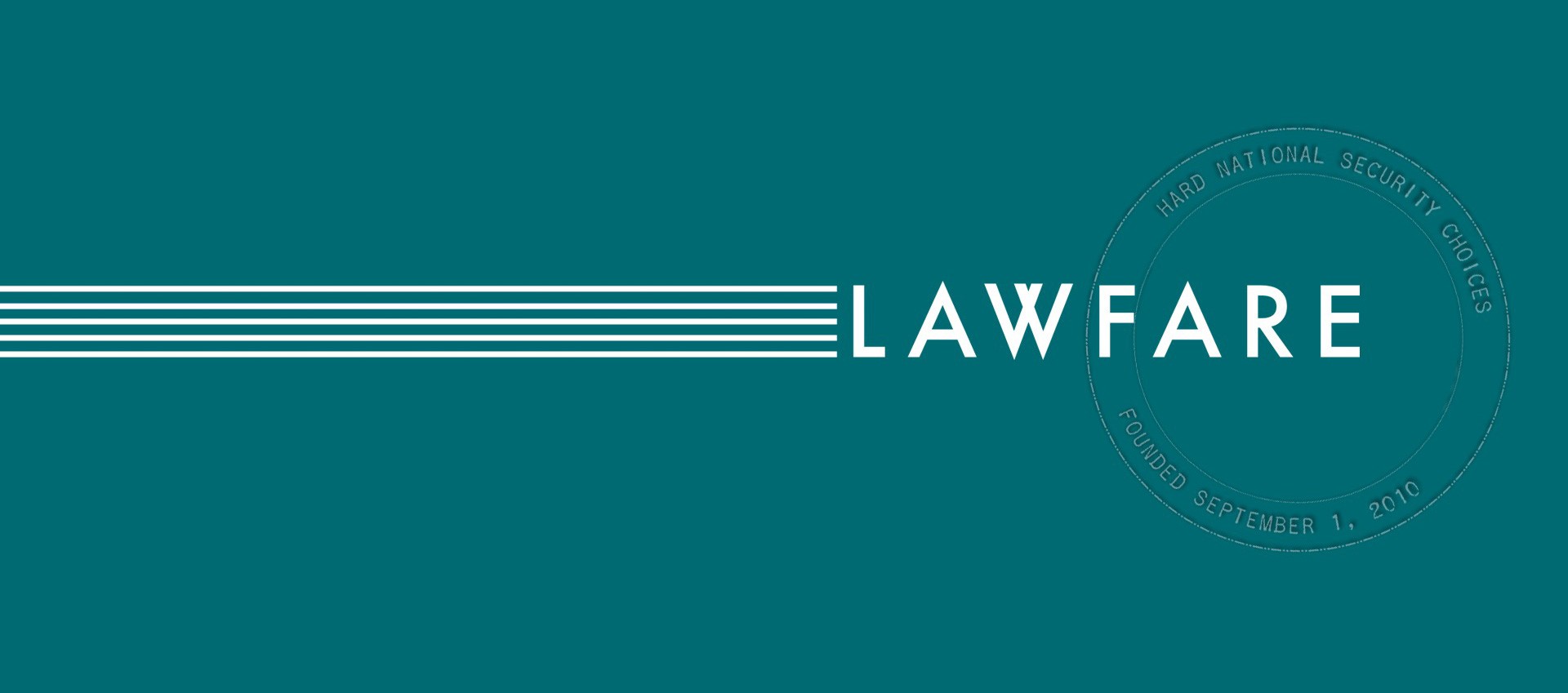Published by The Lawfare Institute
in Cooperation With

Anna Bower detailed the events of a Nov. 22 hearing before the Court of Appeals for the Eleventh Circuit in the Justice Department’s appeal of U.S. District Court Judge Aileen Cannon’s order appointing a special master to review documents recovered by the FBI at Mar-a-Lago.
Benjamin Wittes sat down with Roger Parloff to discuss the Oath Keeper trial now that the case has gone to the jury. They spoke about which charges are likely to stick and which aren’t, the performance of the various defendants that took the stand, and what kind of verdict they expect when the jury ends deliberations:
Scott R. Anderson and Alan Z. Rozenshtein were joined by Hyemin Han and Katherine Pompilio to discuss the week’s big national security news. They spoke about former President Donald Trump’s announcement of his 2024 candidacy, Attorney General Merrick Garland’s appointment of a special counsel to oversee investigations into the former president's attempts to interfere with the results of the 2020 election, North Korea’s recent test of an ICBM, and more:
Brian C. Kalt discussed the history of impeachments and the role of partisan polarization in creating the phenomenon of futile impeachments. Kalt questioned the value of futile impeachments, the recent trend of outsourcing impeachment investigations, and argued that censure could have a more potent political impact.
Tyler McBrien sat down with Alex de Waal, executive director of the World Peace Foundation, to discuss the conflict in Ethiopia and Tigray. They spoke about the current state of the conflict, the terms of the recent truce, and the options for accountability for forced starvation and other war crimes committed by both parties to the conflict:
Daveed Gartenstein-Ross, Andrew Zammit, Emelie Chace-Donahue, and Madison Urban presented their framework for the categorization of ideologically complex violent extremists. Through the creation of their neologism and accompanying framework they attempt to provide a more detailed look at a broad range of ideological actors and assist with prevention and detection efforts.
Eugene Linden explored the history of fragging—when troops turn on their superiors—in the Vietnam War, the role of conscripts in fragging attempts, and how it mirrors a similar phenomenon in the Russian army during its invasion of Ukraine.
Han also shared the U.S. Department of State’s Nov. 17 filing in Cengiz et al v. bin Salman et al stating that the department recognizes Saudi Crown Prince Mohammed bin Salman’s sovereign immunity as a sitting head of state. Cengiz initiated the lawsuit in 2020 against bin Salman for his alleged role in the 2018 assassination of her fiancée, Jamal Khashoggi, a Saudi journalist and dissident.
Vishnu Kannan and Mubashar Rizvi summarized the Department of Commerce’s Bureau of Industry and Security’s new export controls restricting the People’s Republic of China’s access to semiconductors and supercomputer components. They evaluated the potential impacts of the new restrictions on U.S.-China relations, how the restrictions reflect a change in the U.S. underlying approach to technological advancement, and the Chinese government’s reaction to the new export controls.
Stewart Baker, Brian Fleming, Charles-Albert Helleputte, and Michael Ellis sat down to discuss Elon Musk’s recent takeover of Twitter, the U.S.-China Economic and Security Review Commission’s latest report, Google’s settlement with 40 states over its storage of location history data, and more:
Ryan Morhard considered the implications of programmable biology for the United States and its geopolitical agenda. Morhard discussed the applicability of biotechnology for a range of issues, such as energy and food security, and offered ways the United States can lead biotechnology advancements.
And Han sat down with Karen Sokol, professor at the Loyola University New Orleans College of Law, and Chris Callahan, a Ph.D. candidate at Dartmouth College, to discuss the United Nations Climate Change Conference and the historic agreement to establish a loss and damage fund meant to provide resources to nations bearing the brunt of climate change:
And that was the week that was.



